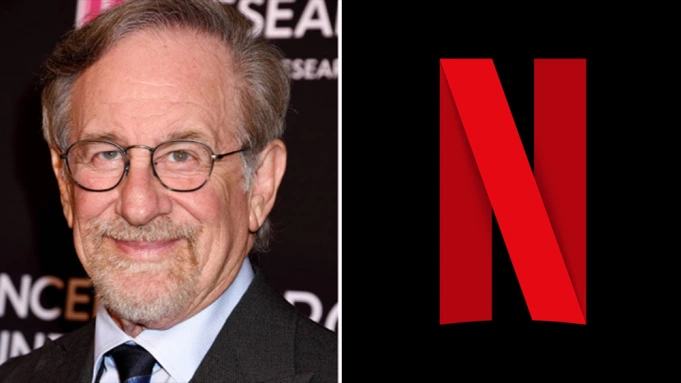Source: Deadline
Even for those who aren’t as interested and knowledgeable of the film industry and the various individuals that are a part of it, there’s little chance that the name Steven Spielberg won’t immediately be recognizable. Considered by many to be one of the biggest names in the history of cinema, Spielberg’s decades-long history as a director has resulted in some of the most iconic films in popular culture, from all-time classics like “Jaws” and “E.T.” to more recent works like “Ready Player One” and the upcoming “West Side Story”. Even when he isn’t in the director’s chair, his magic touch has left its impact, as his production company Amblin has brought forth the creation of several other beloved films such as the “Back to the Future” and “Jurassic Park” franchises. If there is anybody whose involvement can guarantee that a film will be of at least admirable quality, it’s certainly Steven Spielberg.
Being a major contributor to how theatrically released films are viewed in the modern day, it should be no surprise that Spielberg has previously expressed his thoughts on the rise of streaming services and their influence on the art of cinema. Although some have argued that his words were taken out of context, Spielberg is said to have encouraged the distinction between theatrical films and streaming films, claiming that each form of distribution should have its own unique method/style of production in order to differentiate both forms and make it clear which is best suited for a given feature film. That line may be starting to blur for Spielberg, however, as a recent announcement may give Spielberg and his company greater involvement in the streaming than many would’ve expected.
On Monday, June 21st, Amblin Partners, for which Spielberg was a founder and still serves as its chairman, revealed that it was forming a partnership with Netflix, the company currently standing as the world’s most prominent streaming business. The announcement serves as yet another effort by the streaming giant to show itself off as a major force in filmmaking, one that has made it its mission to weaken the line between theatrical films and streaming films. For Netflix heads Ted Sarandos and Scott Stuber, collaborating with Spielberg will give them yet another useful asset to further maintain their presence in the film industry. For Spielberg, the agreement suggests that his desire to separate theatrical films from streaming films may not be as strong as it once was.
It should be noted that Amblin’s partnership with Netflix does not completely nullify its current deal with long-time partner Universal Pictures. In fact, both Amblin and Universal were able to renew their relationship last December, meaning that Universal will still be given distribution rights to a handful of Amblin’s major theatrical releases. However, with Netflix now being more directly involved in the production of Amblin’s films, there’s no longer a guarantee that Universal will be the first studio that will be considered to acquire whichever property, old or new, will receive the cinematic treatment. With Amblin being expected to produce several more features over the next couple years, Universal and Netflix may need to compete for the distribution rights of these new films. While Universal might be more successful when it comes to distributing some of the bigger profile films produced by Amblin, Netflix could very well have the advantage when it comes to acquiring a larger number of films, most of which will have significantly lower budgets than the more blockbuster-like productions.
This would not be the first time Netflix stepped up to provide distribution for films produced by Amblin. For example, “The Trial of the Chicago 7”, one of last year’s Best Picture nominees from director Aaron Sorkin, was originally intended for theatrical release in 2020 with distribution by Paramount Pictures. However, when the COVID-19 pandemic made it unfeasible for Paramount to release the film theatrically, a deal was struck that allowed Netflix to take over as the film’s primary distributor and release the film onto its streaming service later that year. A similar arrangement was made with the upcoming Bradley Cooper vehicle “Maestro”, a biopic about revered film composer Leonard Bernstein, which is currently in pre-production and receiving finance and distribution from Netflix.
“At Amblin, storytelling will forever be at the center of everything we do, and from the minute Ted and I started discussing a partnership, it was abundantly clear that we had an amazing opportunity to tell new stories together and reach audiences in new ways,” Spielberg claims in his announcement of Amblin and Netflix’s new partnership. “This new avenue for our films, alongside the stories we continue to tell with our longtime family at Universal and our other partners, will be incredibly fulfilling for me personally since we get to embark on it together with Ted [Sarandos], and I can’t wait to get started with him, Scott, and the entire Netflix team.” Sarandos, CEO and chief content officer of Netflix, expressed similar sentiments upon the announcement of his company’s collaboration with Amblin, citing Spielberg’s talent as a visionary creator whose stories and characters played a major role in his life. “We cannot wait to get to work with the Amblin team,” Sarandos states, “and we are honored and thrilled to be part of this chapter of Steven’s cinematic history.”
The idea of one of the most famous figures of the theatrical film scene getting more involved in making films meant for streaming may come across as blasphemous to some, but to others, this could be simply an acknowledgement of how much has changed over the past couple years. Between the rise of streaming services and the negative impact the COVID-19 pandemic has had on the industry as a whole, it has become necessary for studios to make permanent changes to how they do business. Amblin and Netflix joining forces could very well be one of those permanent changes. The former’s deal with Universal does prove that releasing films theatrically isn’t a thing of the past yet, but no longer is it a guarantee for anything Amblin plans to make in the future.




